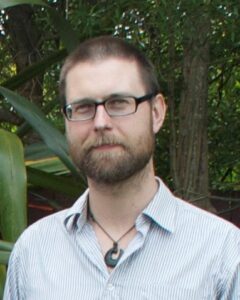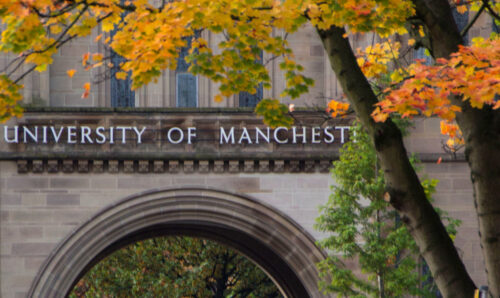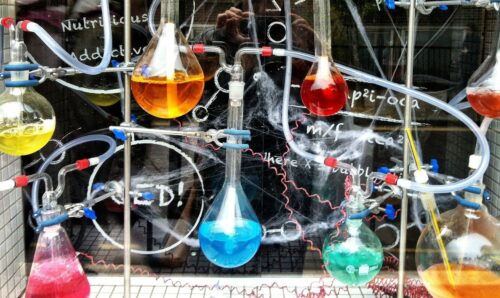Meet the Department: Dr Sam Hay
Meet the Department Welcome to Chemistry 8 June 2020
Hello! I’m Sam Hay, a Reader in Chemistry.
I studied biochemistry as an undergraduate in New Zealand and biophysical chemistry as a PhD student in Australia. I have since worked in Universities in Sweden and the UK.
Please can you describe your research, for the layman, in ten sentences or fewer?
I’m a biophysical chemist, which means that I think about biology in terms of its underlying physical chemistry. Most of my research is concerned with the role of quantum mechanics in biology (quantum biology) and how enzymes work. My group uses a mixture of experimental and computational methods to do this. We can make and study enzymes in the lab, measuring how quickly they produce products, how they respond to changes in temperature, pressure, etc., and we work with structural biologists to solve their structure using X-ray crystallography and/or NMR. We use computational chemistry to help understand these experiments and to investigate enzyme mechanism – how enzymes catalyse reactions and convert substrates into products. Much of this work is done with collaborators, who are located all around the world.

How can your research benefit the public?
We largely do fundamental research, which is not focused on solving immediate real-world problems. However, some of the enzymes we study are drug targets, or have the potential to be used as industrial biocatalysts to produce useful chemicals. Our work then feeds into longer-term drug discovery and enzyme engineering/biocatalysis projects that have the potential to lead to new pharmaceuticals or new ways of making industrial chemicals (biofuels, specialty chemicals, etc.).

How did you first become interested in your research area?
I fell into it, largely by chance. My PhD was focused on designing and building artificial biological solar panels. I then spent time in Stockholm doing electrochemistry before coming to Manchester 15 years ago as a postdoc working on enzymes. I have been based in the Manchester Institute of Biotechnology and worked on enzymes ever since.
How does being here at The University of Manchester help your work and research?
I was attracted to the University of Manchester because it has a huge amount of ‘toys’ – research instrumentation and equipment, which is truly world-class. There is almost no experiment I can conceive of that I can’t do in Manchester, which makes it a wonderful place to do research. I have also found many excellent collaborators here, and the university has been good at supporting my career, from postdoc to research fellow and academic.

Outside of your research, how else do you get involved with the University?
I’m the admissions tutor for the Department of Chemistry and am also involved with several of the PhD programmes, including the BBSRC DTP programme. I lecture on a number of courses that teach aspects of biological chemistry, including enzymology.
What do you enjoy most about Manchester as a city?
It has all the advantages of a big city without the disadvantages of being London, including an excellent live music scene.
Who or what first inspired your interests in science/engineering?
I don’t remember who was first, but I did have some excellent science teachers at high school who gave me some gentle nudges along the way.
What would you say to people considering coming to The University of Manchester to study?
Come to one of our Open Days and we can have a chat.
And outside university… what do you get up to in your spare time?
I live on the side of the Peak District and can often be found walking the hills.






Leave a Reply